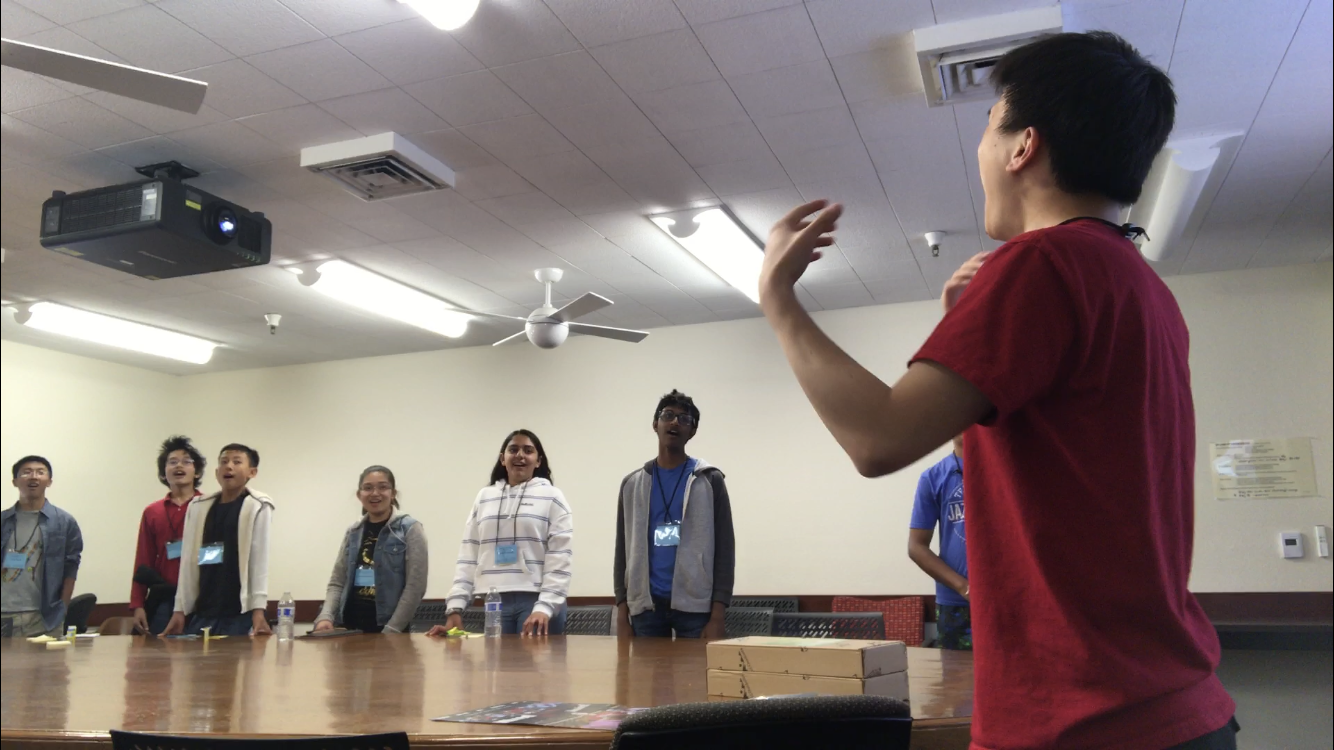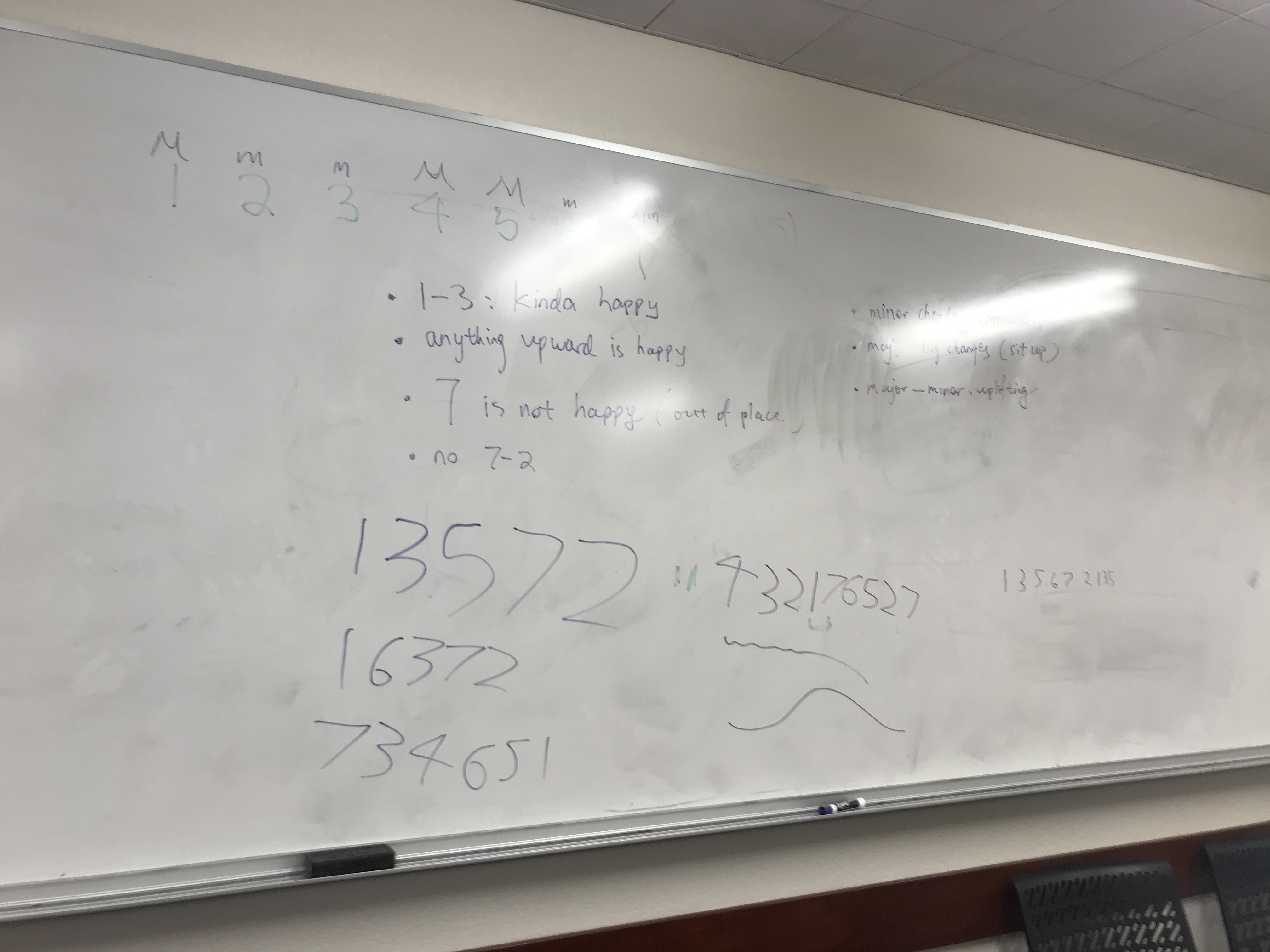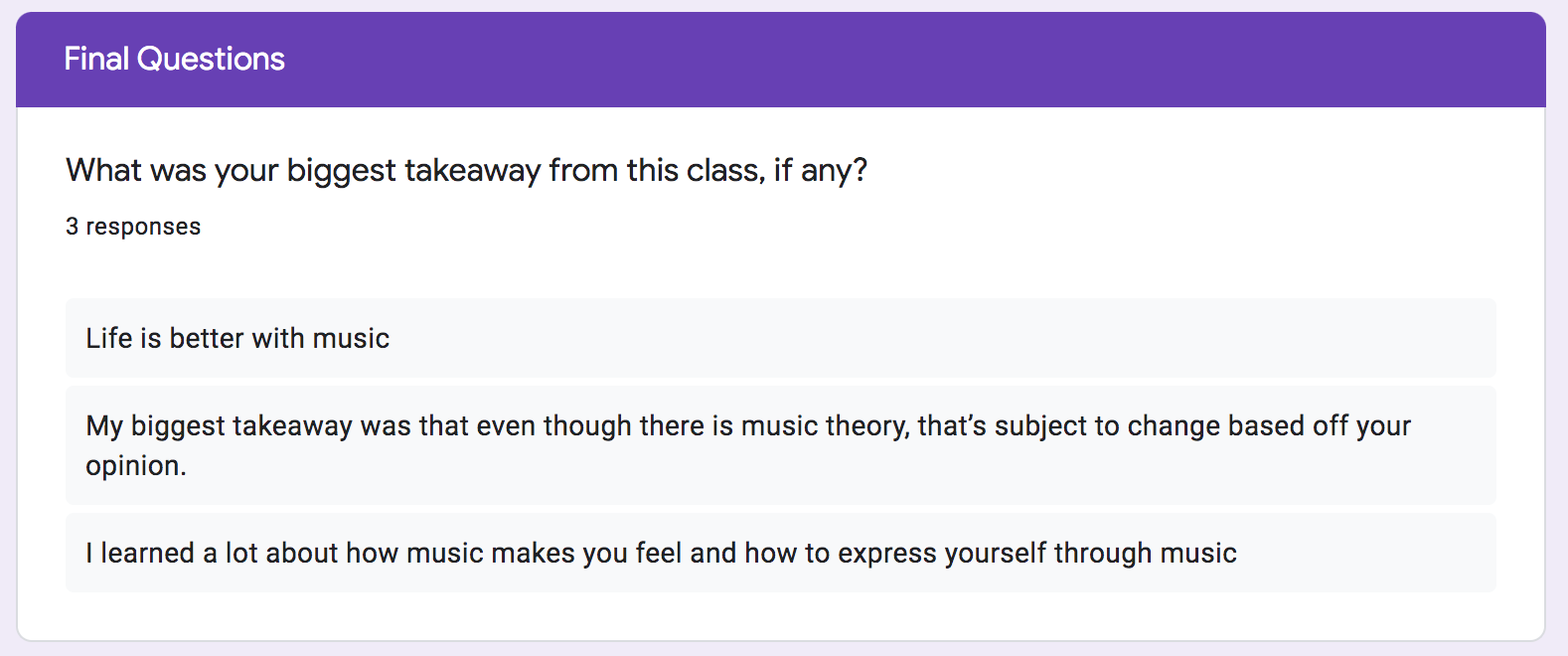Discovering Music
Stanford Splash, May 2019

Context: "Discovering Music" is a music class for 8-10 graders, where students discover the meaning of music by creating their own chord progressions, analyzing pop songs, and challenging their perception of who owns the power to define what is "musically meaningful" (spoiler: the students). I designed and taught this class for Stanford Splash Spring 2019, a weekend event where 8-12 grade students from all over the Bay area come to Stanford and take classes taught by Stanford students and affiliates.
Action: I have previously taught a class for Splash Fall 2018 called "How [sic] Do Music Tell Stories?", where I focused on how information generates meaning and drew connections among philosophy, storytelling, and music. Learning from the lessons of last time, I set out to redesign my Splash class to involve more hands-on activities and more music making. Having benefitted from a customized pre-class survey last time, I also redesigned the pre-class survey to include questions inspired by classes and projects from the past 2 quarters. As usual, I made last minute changes to the lesson plan the night before according to the students' interests from the survey.
Result: Because I was teaching two sessions back to back, I had little time to incorporate feedback from the first session into my second session, and I eventually made the bold decision to drop a main activity that hadn't been well received and change the instruction of another activity to be fully student-led and open-ended, which called for significant improvisation. The risk paid off, and the second session became my most successful session ever (judging from student engagement). But success came with a price, too: Some students came for what was on the original class description and were reasonably disappointed when it turned out to be something different.

Image: Even though most of the class didn't have any music theory background, they were excited to try out different combinations of chords, make up stories according to what they heard, and iteratively change the chord progression to achieve a specific feeling.

Image: Sample results from the post-class feedback survey.
Skills
- Learning Experience Design
- Teaching
- Survey Design
Insights and Lessons
- Your early adopters might not be your target users.
- You can't keep every student engaged at all times, but you better find out why they tune out. (Hint: It's probably on you.)
- Be ready to let go if your proudest innovation flops.
- Pivot moderately and expect consequences.